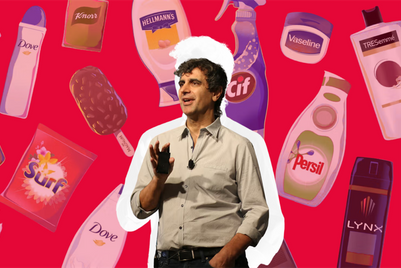
Seven in 10 marketers increased their spend on generative AI creator content last year, with another 70% planning to increase spend further this year, research from Billion Dollar Boy has found.
Marketing budgets could see a shake-up, as 65% of marketers in the survey said the spend will be sourced from other marketing channels.
The influencer marketing agency surveyed 6,000 marketers, creators and consumers across the UK and US.
Its white paper containing the research, titled “AI as a creative muse: How generative AI is influencing the creator economy” showed generative AI adoption is high for marketers, with 92% having commissioned generative AI creator content and 91% of creators having used it to create their content.
As for creators’ pay, 65% of marketers are willing to pay more for creator content that is designed using generative AI compared with traditional creator content.
However, marketers and creators are far more optimistic about AI than consumers. Most marketers and creators believe generative AI will positively disrupt the creator economy, at 75% and 69% respectively.
Consumers, meanwhile, are more sceptical. But they are still twice as likely to agree that the technology will "positively disrupt" the creator economy than disagree, with 34% agreeing and 18% disagreeing.
The study also revealed younger generations are more likely to prefer generative AI content over traditional from creators, with 35- to 44-year-olds the most likely at 70% and over 55s being the least at 45%.
US consumers are more likely to believe generative AI will positively disrupt the creator economy compared with UK consumers, at 39% and 28% respectively.
Becky Owen, global chief marketing officer at Billion Dollar Boy, said: “Our research reveals strong appetite for generative AI in the creator economy, with the consensus that it’s improving the quality and diversity of creator content—supported by strong performance results—while also providing efficiencies and solutions.
"It can alleviate workload, offer cost-effective production at speed and scale, reinvigorate product-centric assets, and combat creative fatigue. But concerns around the misuse of the technology mean brands and creators must implement it responsibly and intentionally."
The white paper follows Billion Dollar Boy’s launch of Muse, an innovation unit that explores the impact of emerging technologies.


.jpg&h=334&w=500&q=100&v=20250320&c=1)


.jpg&h=334&w=500&q=100&v=20250320&c=1)
.jpg&h=334&w=500&q=100&v=20250320&c=1)


.png&h=334&w=500&q=100&v=20250320&c=1)




.jpg&h=268&w=401&q=100&v=20250320&c=1)



